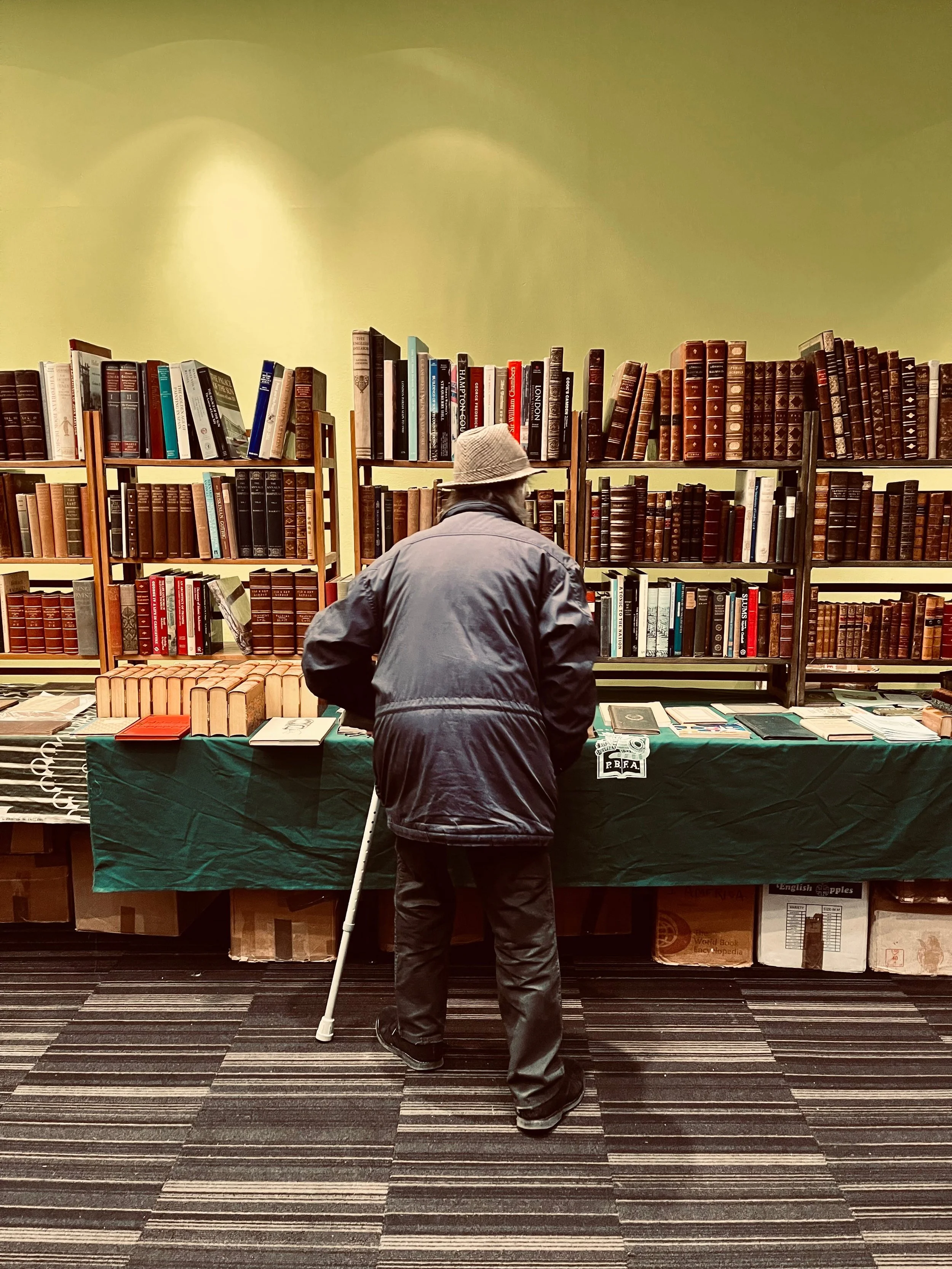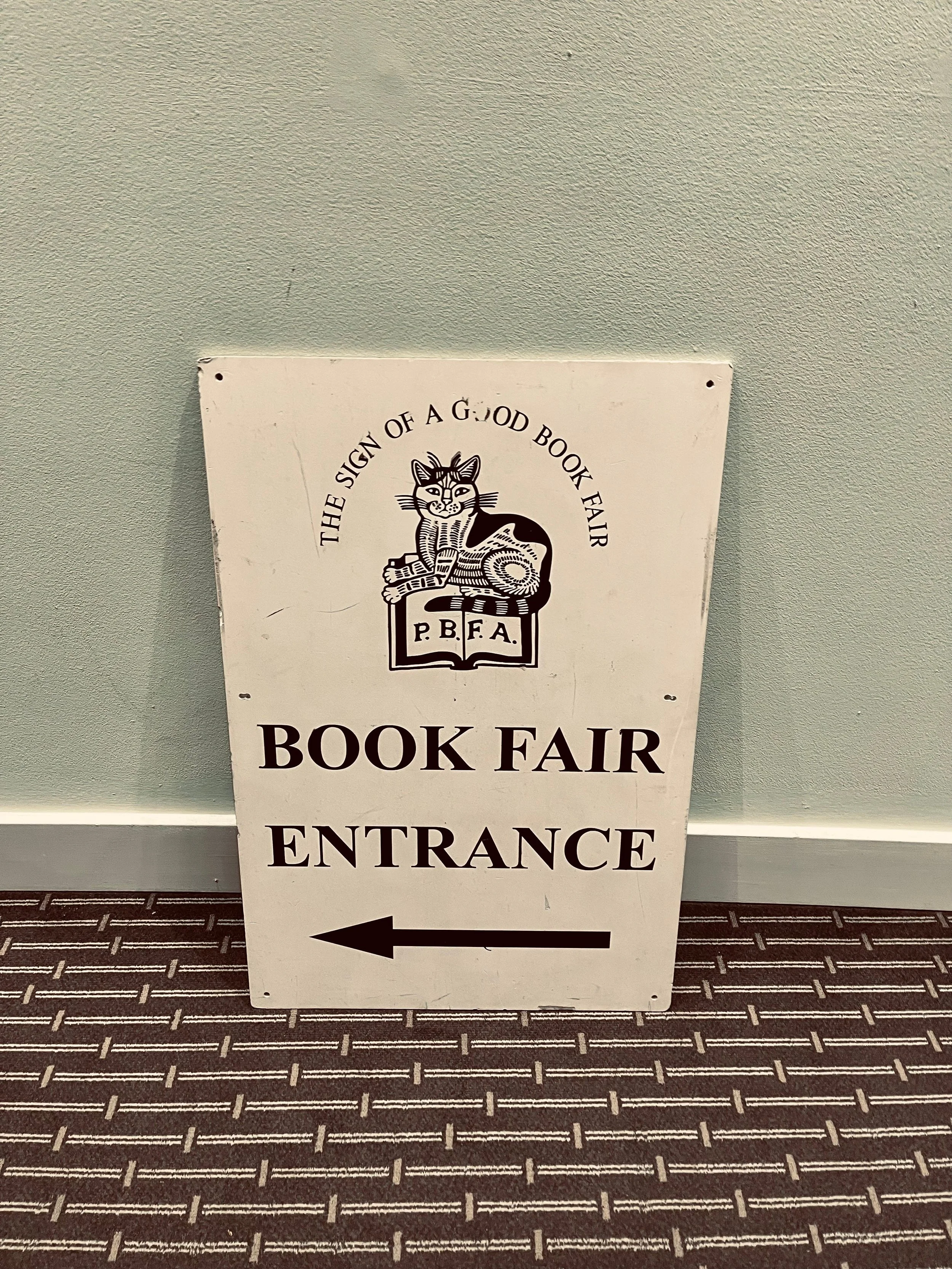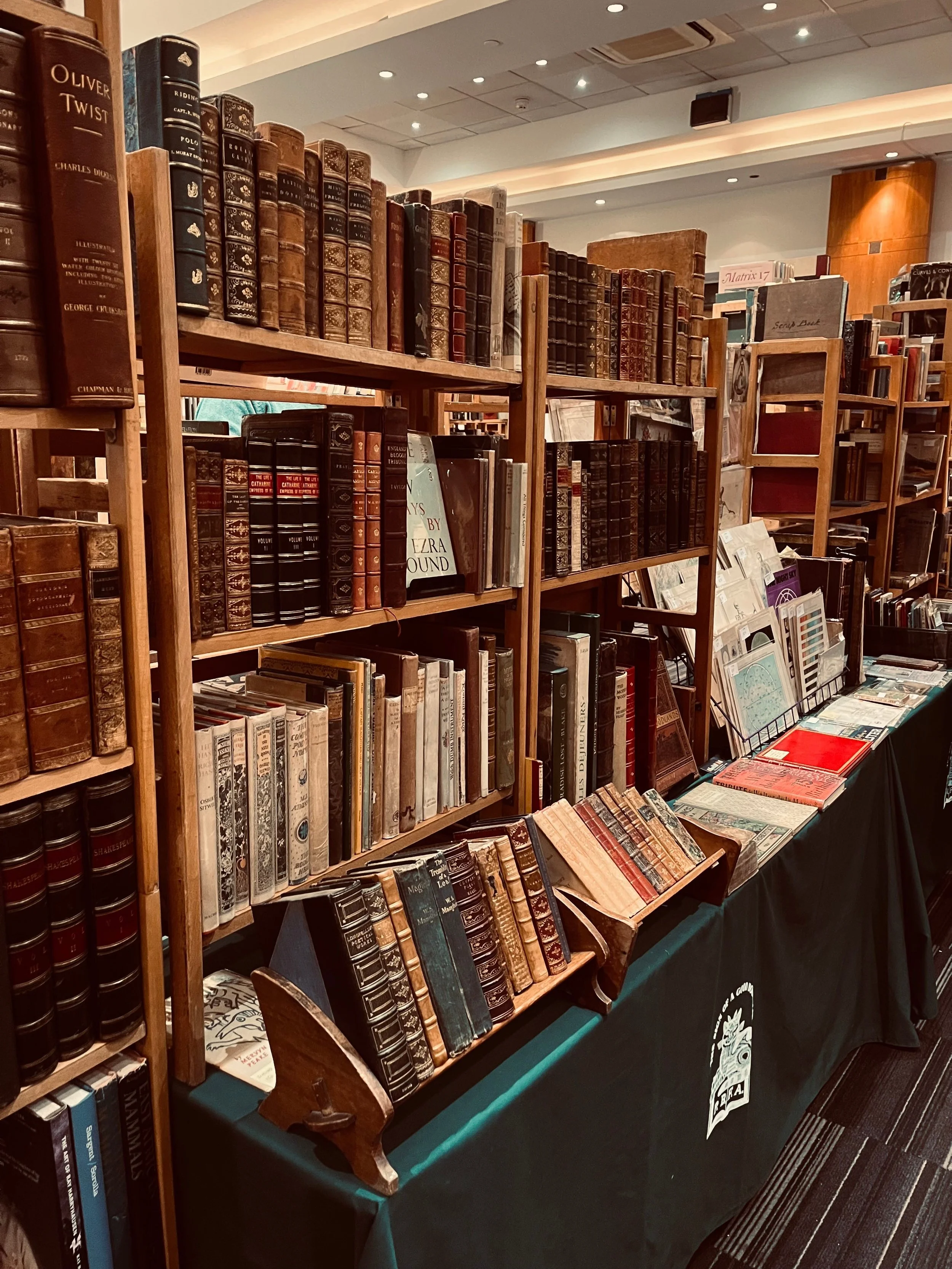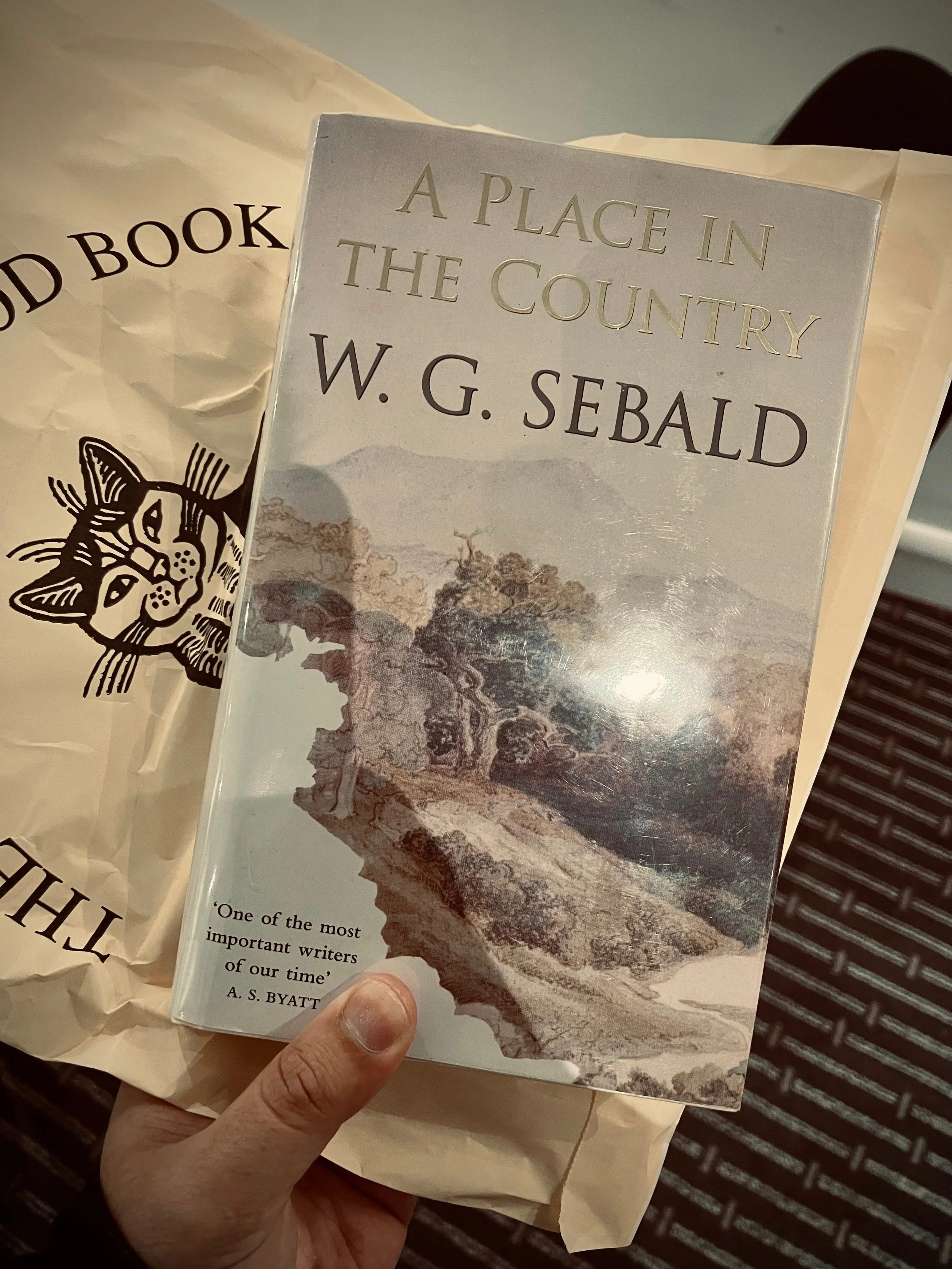💂♀️A Dispatch From London's Book Fair (2023)
“Only in the books written in earlier times did she sometimes think she found some faint idea of what it might be like to be alive.”
~ from W.G. Sebald’s Austerlitz
It is said that we should be eternally grateful to the Stourbridge book fair, as it was there that Sir Isaac Newton purchased a book that altered the course of his life and of humanity.
The book that set in motion Newton’s passion for science was written by a Greek polymath and mathematician, Euclid, and is known today as Elements. I wish I could have been a fly hovering above him at that precise moment when he stumbled upon that book.
Newton discovered Euclid’s work at a peddling bookshop or a bookshop that was constantly on the move, journeying from one town to another, purchasing rare books from sellers in one town, and then selling them to readers to another. Peddling bookshops couldn’t have a ‘fixed catalogue’ of books by their nature. Their catalogue was a living organism in a perpetual state of transformation and metamorphosis.
It’s incredible to think how many times the history of humankind was altered by purely accidental events like this.
At first glance, the London Book Fair I attended two weeks ago appears to have no connection to the Stourbridge book fair that Newton visited 400 years ago. American tourists, often quick to exclaim,'It’s like in Harry Potter!' with excitement when encountering an old shop or street in London, wouldn't have been impressed had they seen the location where the fair was hosted.
It was hosted in a conference room of one of the modern ugly-buildings that one can witness everywhere around the world today. The only thing that indicated that the conference was happening at all was a small sign with an arrow pointing to the hall where booksellers unveiled their stalls.
But still, I couldn't shake the feeling that I was partaking in a perpetual motion—a phenomenon that originated in the distant past and endures into my time.
Booksellers from all across the United Kingdom gathered in this space. There was a rare bookseller from a tiny village in Wales who specialised in 18th-century poetry books. Two rows behind him you could find a Scottish bookseller who owned rare academic books on Lawrence of Arabia, which I, unfortunately, couldn’t afford to buy.
I could imagine a modern-day genius in the making stumbling upon an enormous 17th-century illustrated volume about birds of the British Isles and falling in love with the subject as it happened with Newton and Euclid’s Elements.
There was a bookseller from a remote town in Scotland who had an extraordinary collection of children’s books. The illustrations in those books were splendid and exceptional. If I had as much money as Jeff Bezos I would have bought the whole stall.
Whilst browsing you could occasionally overhear conversations between the booksellers themselves. Two of them, who both specialised in books about architecture, were discussing some editions that they wanted to find and acquire.
Another book, I wish I could have afforded to buy, was the first English edition of The Captive Mind written by the Polish poet and philosopher Czeslaw Milocz. It costed about 400 pounds and was on sale by the famous Hatchard’s bookshop founded in 1797 and located in Piccadilly.
My reader might be wondering what’s the average price of a book at this fair. Well, of course, it varies. A rare 19th-century edition of one of my favourite novels costed about 250 pounds, which is not expensive for a rare book. But, you could find other volumes by more contemporary writers for around 50 pounds.
About a year ago, one of my bookish friends introduced me to the great writer W.G. Sebald. Following her recommendation, I bought his ‘The Natural History of Destruction’ and I’ve to say - it was an instant love affair. I continued with ‘Vertigo’, then ‘Austerlitz’ and it was at London’s Book Fair that I, like Sir Isaac Newton, accidentally stumbled upon the first edition of Sebald’s collected essays called ‘A Place in the Country’.
No genius will be born out of this serendipitous encounter, and the course of history won’t be altered at all, but I can guarantee you that I will enjoy reading each page of this wonderful book.
Those are essays dedicated to the favourite books of W.G. Sebald, in them he explores the books that changed him and his life. As I stood staring at this book in my hands, my wife looked at me with amazement at how excited I was about purchasing it.
I guess that’s the beauty of bookshops and book fairs - you enter them and you never know which authors you’re going to encounter inside. I left the fair before it ended, but I can imagine in my mind how all those modern booksellers packed their boxes and their bags of books to journey to another festival somewhere in the country. They do what their ancient, medieval, and enlightenment era ancestors did decades, centuries, or millennia ago.
Confide tibimet.
———-
P.S.
I would love to leave my reader with a quote by W.G. Sebald which I chose to omit from the main body of the text for stylistic reasons. I still would love to share it and here it is:
“It is thanks to my evening reading alone that I am still more or less sane.”
~ W.G. Sebald, Vertigo




